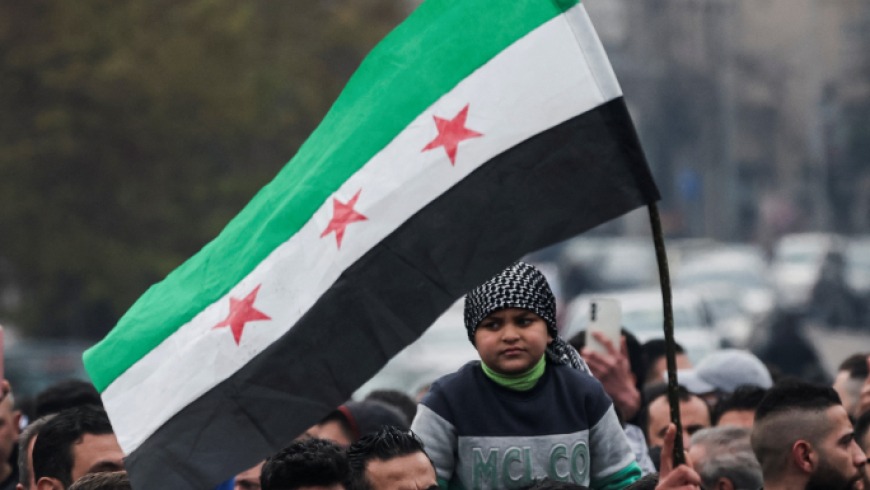This article will not attempt to depict the Syrian reality—journalists, news channels, and social media have left no stone unturned. Nor is it an effort to explain or justify; instead, it aims to open a small crack in the wall of silence and stagnation that we Syrians have struggled to break since March 2011.
The jubilation witnessed in homes, streets, and squares—shared by opposition supporters, neutrals, and even former loyalists—was a rare moment of collective triumph, a dream long pursued and fought for. Bashar al-Assad is gone, his name now synonymous with cowardice, treachery, and brutality. One day, we will see him behind bars, subjected to a public, transparent, and just trial—the very kind of justice his regime denied us for decades. Yet Syria, which has now emerged unadulterated and free from his grip, remains gravely ill. It will stay so unless we all rise to heal the wounds inflicted upon it.
The Path to Recovery
The solution begins everywhere: with the broad base of people who took to the streets in droves to clean their neighborhoods, with the mothers searching among mass graves for their loved ones, determined to uncover the truth and ensure that such horrors are never repeated. It starts with thinkers, writers, artists, and specialists in governance, law, and economics—those elites who have moved beyond merely being lines in books gathering dust on shelves.
Shibani at Riyadh Meeting: Fallen Regime Left Heavy Legacy of Corruption
Above all, change must start decisively from the top of the current power structure, with doors of dialogue and discussion flung open wide. True transformation begins when we recognize our limitations and the magnitude of the nation we represent—a nation that, just days ago, captured the world’s attention and shook the collective human conscience. Victory’s responsibilities do not end with military success or securing safety. Social dialogue and political openness must follow.
“In the beginning was the word,” and that word—stifled for decades in Syria—has now become an urgent necessity.
The Primacy of Politics
Everything begins and ends with politics. As we focus on rebuilding, we cannot ignore the new structures that have emerged after the fall of the dictator’s regime. While security, disarmament, and the reactivation of state institutions are critical to securing basic necessities like water, electricity, bread, and fuel, this cannot overshadow the priority of political participation. Political inclusivity is essential to crafting the final agreements that will shape the new Syrian constitution.
The transition from war to peace is fraught with tension. Nerves are taut, emotions charged—both among the victors and the defeated. Those now in power must not let victory blind their judgment, nor should the vanquished be suffocated by fear.
In Syria today, there are clearly two sides. The victorious side represents life and the future, bearing the weight of immense sacrifices. This side includes rebels—civilian, military, and political opponents—and every Syrian who refrained from participating in the regime’s massacres and crimes, even if they were neutral or formerly supportive. However, it does not include those who committed crimes, violations, or corruption. The defeated side encompasses all who fall outside this category, from Bashar al-Assad, temporarily evading justice, to the smallest corrupt official or criminal.
A Seat at the Table
Building Syria’s future demands that representatives of the victorious group—all of them, across nationalities, religions, sects, and political affiliations—have a seat at the founding table. This means Muslims, Christians, and others who reject categorization by religion or sect; Arabs, Kurds, Turkmen, Armenians, Circassians, and Chechens who define themselves by party affiliations rather than ethnicity. All must contribute to shaping the political framework.
Agreement must be reached on the essence of democracy, not just its superficial mechanisms. The foundational rules must be inclusive and satisfying, capable of eliminating fears and fostering unity. If many Sunni Muslim Arabs, Kurds, and Turkmen feel unrepresented now, how can minorities like Christians, Druze, Alawites, and Yazidis feel secure about their future? And how can women trust in a tomorrow that builds on a history marred by exclusion, marginalization, and predetermined labels that no longer fit the demands of modern life and its complexities?
The Looming Choice
This is not a call to differentiate or divide Syrians but an effort to clarify the terms of the social contract we aim to draft together. We are at a pivotal moment, weaving the threads of Syrian national identity. The garment we seek to create cannot be monochromatic or devoid of patterns.
We are all on the frontline. Either we confront the complexities of this moment and come to the dialogue table to voice our concerns, fears, and aspirations, or we retreat behind them and risk plunging into another war—a war that this time may leave nothing and no one standing.
The revolutionaries of Kafranbel once captured this truth in a timeless banner:
“Overthrow not a vice regime to replace it with a similar one,
For shame is yours if you do.“
Note: This is a variation of an old verse that reads:
“Preach not against a vice you share,
For shame is yours if you don’t care.”
This article was edited by The Syrian Observer. The Syrian Observer has not verified the content of this story. Responsibility for the information and views set out in this article lies entirely with the author.


